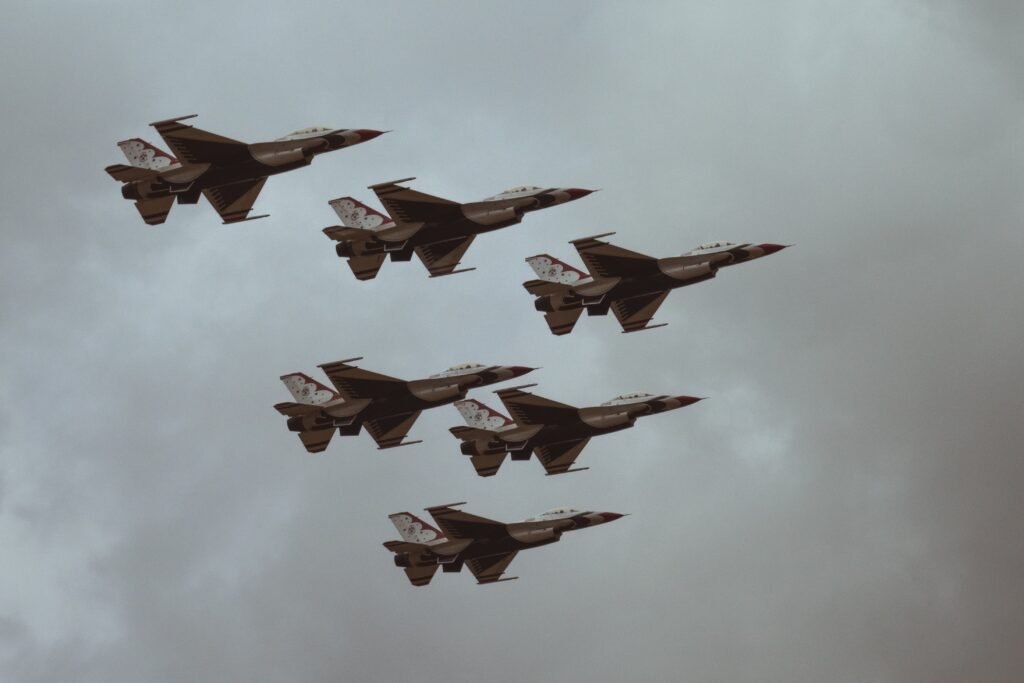US , Ukrain war with Russia

KEYWORDS:
Biden Administration response, Ukraine policy, U.S. as a realist, Russia Invasion, International politics, U.S. aid for Ukraine, NATO, European Countries
ABSTRACT:
The strategic partnership was even more critical after the Russian war in Ukraine. Most research focuses on the historical perspective of unique relationships based on the long-standing nature and stability of these relationships. Others describe intergovernmental cooperation as a dynamic development rather than a static phenomenon.
Typically, strategic cooperation is multilateral, including economic cooperation, military assistance and cooperation, and democracy promotion. Scholars also point to cultural affinity as an essential factor facilitating mutual trust and the possibility of strategic cooperation. This thesis will discuss the history of the US-Ukraine economic, socio-political, and military partnership and its strengths and weaknesses compared to the US-Georgia strategic partnership.
Finally, this study helps to answer the following questions: How is the situation in Georgia different from the situation in Ukraine? Why did the U.S. response, in 2008 and again in 2014, seem to undermine diplomatic solutions, effectively and adequately deal with conflicts in the post-Soviet space? Defense and security cooperation has become another central pillar of strategic cooperation in Ukraine and Georgia, which received the most attention after the August 2008 war.
Therefore, it is essential to answer this question in assessing the importance of US-Ukraine and US-Georgia relations in light of the emerging US-Ukraine strategic partnership.
Russia’s invasion of Ukraine is the most important geopolitical event of 2022. Orbis writers discuss what happened in the invasion attempt, starting with Dov Zakheim’s analysis in the spring 2022 issue. As we reach our first anniversary, Orbis Revisited will provide a final evaluation to its partners. Frank Hoffman’s article is joined by this article by Jeffrey Manoff.
The work of the Biden administration in response to the attack on Ukraine has exceeded the expectations of many observers (not to mention Russia’s leadership). From sharing intelligence with Kyiv before the invasion to imposing sanctions on the Russian economy to supplying more weapons to the Ukrainian military, the United States is making it essential that Russia fails to achieve its goals—target type.
Despite American support and actions against Ukraine, the war is now entering its second year, and some observers in the United States and Europe are growing increasingly alarmed at the outcome test of the long war.
Amid these concerns, some of the harshest criticism of Biden’s handling of Ukraine policy has come from revealing facts. Realism, commonly taught in international relations courses, portrays globalization as an injustice in which states ruthlessly pursue their interests. This is important for countries and leaders who allow vague promises to hinder recruitment.
Realists and realists are by nature wary and wary of the Great Crusades and know that problems in international relations are rarely “fixed” but must be managed over time. These decisions have led many realists to call for more remarkable restraint in aiding Ukraine. At the same time, conservatives argue that the United States should continue to directly support Ukraine’s efforts to expel Russians from its territory.
BACKGROUND:
Although Europe has a long tradition of politics, religion has always been more influential in education than government in the United States. In recent years, there has been a revival in response to the overreach of the war on terror. It reflected a worldview that Putin has long expressed, emphasizing a deep-seated unity among Eastern Slavs—Russians, Ukrainians, and Belarusians who all trace their origins to the medieval community of Kievan Rus—and suggesting that the modern states of Russia, Ukraine, and Belarus should share a political destiny today and in the future.
The importance that Putin and other Russian elites attach to the idea of Russian-Ukrainian-Belarusian unity helps explain the origins of the current conflict, especially why Moscow was willing to risk a full-scale war on its borders when neither Ukraine nor NATO represented anything. military threat. However, the Russian war largely stalled because this calculation about Ukrainian identity proved dramatically wrong. The Russian war slowed in large part because this calculation about Ukrainian identity turned out to be dramatically wrong.
The February 21 speech was particularly vitriolic; Putin has long maintained that Russians and Ukrainians are “one people” whose shared history implies they should also share a common political destiny today. They emphasized the existence of a tripartite “All-Russian” people composed of Great, Little (Ukrainian), and White (Belarusian) Russians, a view promoted in the educational system of the nineteenth-century Russian Empire.
Liberal Habsburgs tolerated the Ukrainian national movement—even providing support to Ukrainian forces fighting Russia during World War I and helping Ukraine gain brief independence after the Russian Empire collapsed.
LITERATURE REVIEW:
Today, intellectuals, including academics such as Stephen Walter and John Mearsheimer and politicians such as Henry Kissinger, have warned about the dangers of government support and Kyiv. Realists critically assessed the most dangerous ideas of those who supported decisive intervention, such as the idea of a no-fly zone in Ukraine in the early stages of the war.
Their criticism focused on concerns that U.S. support could escalate the conflict into a confrontation between Moscow and NATO, divert resources away from the more critical “rivalry” with China, or cause a general contention that would lead to unification in Russia. Harder. Defeating Russia and moving it into a new European security architecture is impossible. None of these concerns should be dismissed too quickly. But each of them consists of questionable questions.
The natural conditions for aid to Ukraine include Mearsheimer’s insight into the nature of international politics, especially the dangers of a great power struggle with Russia and China.
Russia’s growing interest in peace and development under Vladimir Putin. European stability. He acknowledged that Ukraine’s growing power and intelligence allowed him to agree with the United States and its allies to, as Defense Secretary Lloyd Austin put it, “cut off Russia” and reshape the world’s balance of power.
Moscow has purposefully fostered these anxieties: Putin threatened to impose “consequences” on any nations that try to obstruct the invasion of Ukraine at the outset of the conflict. … such as you have never seen in your entire history,” and in September, Putin noted that the United States had created a precedent for nuclear use with its bombing of Hiroshima and Nagasaki, hinting that Russia would be justified in resorting to atomic use if it failed to achieve its objectives through conventional means.
Russian nuclear doctrine is evident in the circumstances under which Moscow would use atomic weapons: in the event of a WMD attack on Russia or in reaction to a conventional strike in which “the very existence of the state is in jeopardy.” There are two disclaimers, though. As was the case during the Soviet invasion of Afghanistan, the United States must be prepared to negotiate even as it seeks to defeat Russia in Ukraine.
Kissinger juxtaposed the inclusion of Weimar Germany in the European security framework that emerged following World War I with post-Napoleonic France’s entry into the Concert of Europe in his first—and possibly best—book, A World Restored.
According to Kissinger, Austrian Chancellor Clemens von Metternich insisted that France under the restored Bourbon dynasty have a stake in post-1815 Europe that ensured a century of relative peace among the great European powers.
Realists worry that a defeated Russia will prove to be just as belligerent and aggressive as the Allies created in 1919 in Paris, making a stable postwar order impossible. They have drawn comparisons between the post-Cold War settlement that Russia is currently attempting to dismantle and that agreement.
Similarly, a new European architecture that includes Russia can only work if Russia itself sheds its imperial and autocratic impulses and comes to share the worldview and values of its European neighbors.
THOERATICAL FRAMEWORK:
If transforming Russia is not in the power of the Western allies, they should settle instead for a more modest ambition—ensuring the failure of Russia’s war in Ukraine, followed by something asking to the containment method developed by George Kennan for charging the Cold War.
The United States and its allies need to be more innovative and forward-thinking than they were in 1990–1991 in order to anchor Russia to the institutions and norms of the democratic West if and when its inherent contradictions force a reckoning with the legacy of its imperial war, but that challenge is well into the future.
Russia, Ukraine, and China’ Investment Challenge’:
This is the address of China, which many realists see as the only serious threat to U.S. interests, in addition to worrying about Russian revanchists. If the United States is serious about checking China’s expansion in Asia, realist scholar Elbridge Colby warned, it must “reduce the scale of forces and expenditures in Europe and focus its military efforts on Asia.” The sentiment was based on the Biden administration’s description of China as an “immediate challenge” facing the United States, compared to Russia’s “immediate and persistent” threat.
This is based on the assumption that the United States can significantly expand its commitment to Ukraine while making some heroic and unrealistic assumptions about the ability of European governments to promote and maintain order in their regions. Similarly, he predicted that events in Ukraine and Europe have minimal implications for geopolitical competition in Asia.
Let’s be realistic:
Ensuring Russia’s defeat in Ukraine would benefit the United States. If the failure of the Russian war of aggression causes significant changes in Russia, the U.S., and its allies will have the opportunity to correct some mistakes in the construction of the post-Cold War security architecture that realists (and Russian scholars) point to. as a significant factor in the conflict in Ukraine. While Russia remains belligerent and aggressive, its failure in Ukraine will make it weaker, poorer, and more isolated.
The U.S. should heed realist warnings about overdoing it or taking unnecessary risks in providing aid and support to Ukraine. As Hans Morgenthau, the founder of academic realism, pointed out, rationality is a fundamental realist trait. Similar tact is the Biden administration’s refusal to use US-supplied weapons to attack Russian soil, send American troops to Ukraine, or use a no-fly zone that claims to be Russian targets.
Refrain from rejecting Kyiv’s desire for heavy weapons and long-range artillery, which will allow them to install more effective offensive operations. Nor should the United States seek the defeat of Russia and the withdrawal of all Russian forces from Ukraine as the goal of the war.
FA/QS :
Why did Russia invade Ukraine?
Russia’s “special military operation” in Ukraine aims to end the “genocide” committed by the “Kyiv regime” and disarm and demobilize it. The Russian-Ukrainian border has created an internal divide between the pro-European population and the pro-Russian East, leading to potential conflict. Putin claims this is part of a broader plan to undermine Russia, including: NATO’s post-Cold War expansion.
Who wins the war?
Russia’s military outstrips Ukraine’s, spending over 10 times as much on defense annually and having a little under three times as much artillery and fixed-wing aircraft. Despite initial predictions that Russia would easily win a conventional war, Ukrainians have held Kyiv a month into the invasion. The Russian plan initially assumed a swift march on Kyiv would meet only token resistance, but this plan fell apart within the first 48 hours of the war. Ukrainian forces have engaged in smaller-scale clashes, resulting in a stalling of the Russian invasion.
What is the U.S. role in the conflict?
The conflict between Ukraine and Russia is now a conflict, and the U.S. plays a vital role in helping the cause of Ukraine. The U.S. has used several tools to push Putin back, including military aid and economic sanctions. NATO’s post-Cold War expansion in the 1990s upset Russia and fueled the current conflict. The U.S. is ready to take aggressive action to punish Moscow and Kyiv’s war efforts, including the rejection of Poland’s plan to transfer MiG-29 fighter jets to Ukraine.
FINDINGS
The U.S.’s financial aid to Ukraine, despite its widespread use, is gaining political attention, with 61% of Americans advocating for limits on aid. Partisan shifts favor immediate conflict end, with 55% of Republicans and 55% of Independents favoring prolonged conflict. Democrats support Ukraine’s regaining lost territory. The conflict’s future remains a crucial question, with 66% of Americans favoring U.S. support for Ukraine, while 43% favor quick stop, potentially causing Russia’s territory cerements.
CONCLUSIONS:
However, historically, the relationship between these three organizations is complex and involves geopolitical, economic, and security issues. The tension between the United States and Russia, as well as the situation in Ukraine, has become an important global issue with various factors, including regional conflicts, political disagreements, and military action. It is essential to consult new and reliable news sources to get the latest information and analysis on the current situation between the United States, Russia, and Ukraine. Dynamically, events may change since my last update. Russia’s occupation of Ukraine has shattered Europe’s remaining post-Cold War illusions of order, making it difficult for Ukraine and the West to respond, while Russia is increasingly isolated. What caused this fight?
In summary, several factors are involved. From the beginning, the goals of the perpetrators, although covered by the euphoria associated with the fall of communism, were incompatible. Seeing security as one of the conflicting goals in the classic security dilemma changes our understanding of what is happening and our ideas about what the future might look like. Although many choices can be made differently, the foundation of the conflict is deeply entrenched, and, as the actor-oriented literature shows, the actors are more limited, both international and domestic. This means that plans to make Ukraine a neutral country or wait for Vladimir Putin to step away from the scene will not solve this conflict.
Visit: Timebuissnesnews.com








